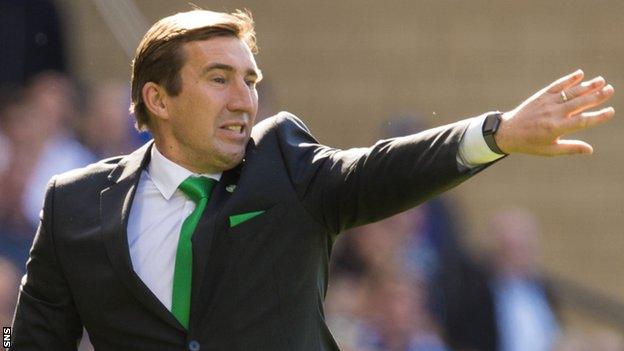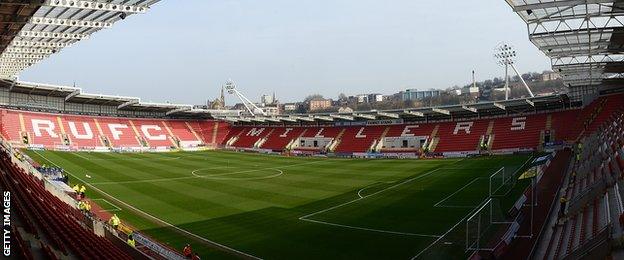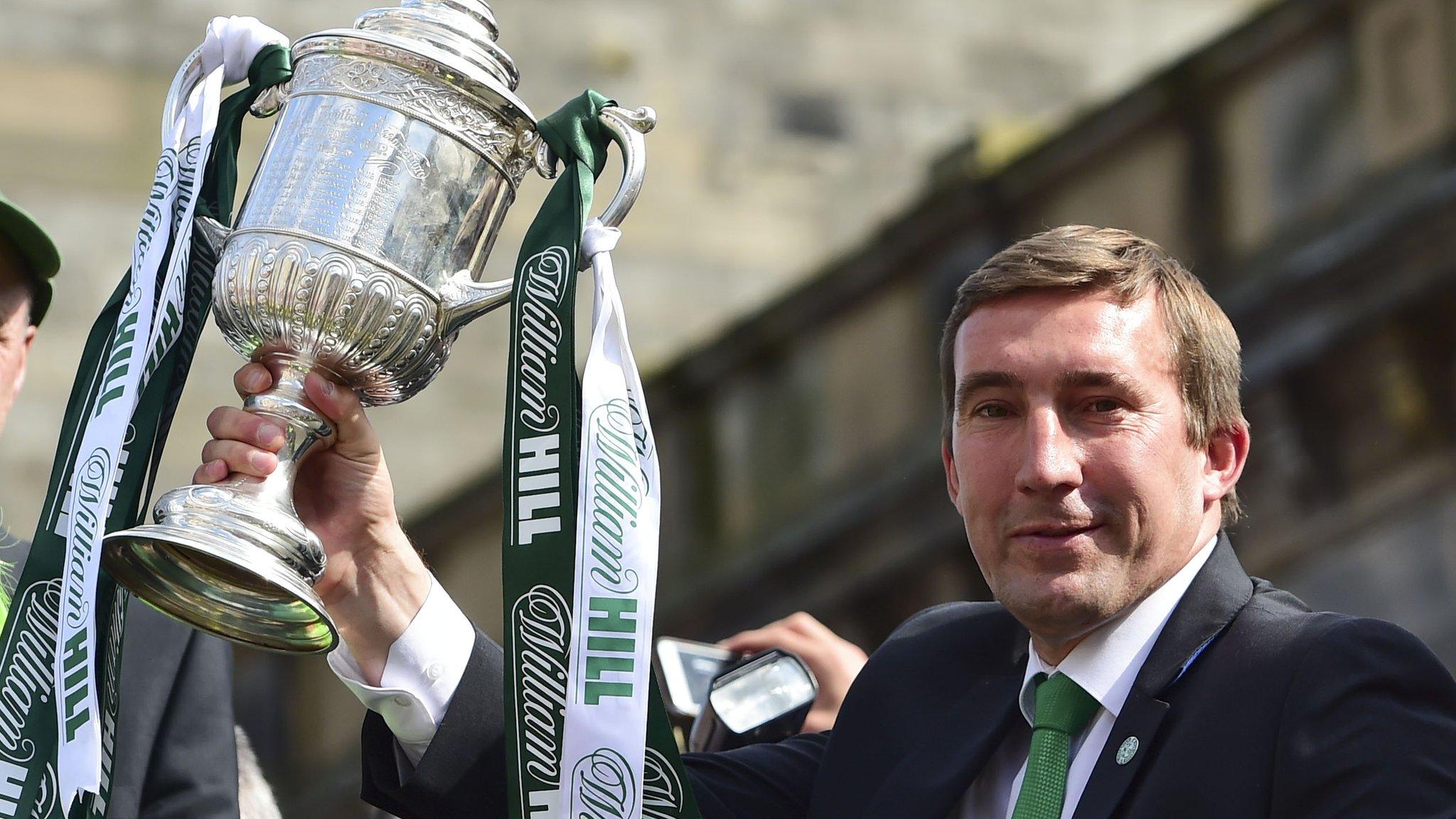Alan Stubbs: Hibernian v Rotherham, which way should manager go?
- Published

Will Alan Stubbs be waving goodbye to Hibs after two years in charge?
Alan Stubbs may be a hero in the eyes of the Hibernian faithful after leading his players to a first Scottish Cup triumph in 114 years.
But the 44-year-old now faces one of the most difficult decisions of his short managerial career.
With English Championship side Rotherham United being given permission to speak to the Easter Road boss, Stubbs has a decision to make.
Does his future lie with the club he has taken into Europe? Or with a team that over the past two seasons has struggled to maintain their place in the second tier of English football?
What will sway the former Evertonian one way or another?
Home comforts?
Hibs' Easter Road ground has been redeveloped over the past 15 years and is now one of the most modern sporting arenas in Scotland.
With a capacity of just over 20,000, it can generate an atmosphere when full that can equal almost any other in the country. But, with average attendances last season just over 9,000, it can also at times fail to lift the players.
In 2008, Rotherham vacated their original home at Milmoor, where they had been based since 1907, and moved around South Yorkshire before eventually ending up at the glamorously named New York Stadium.

Rotherham's 12,000-capacity New York Stadium opened in 2012
With a capacity of 12,000 and an average attendance of just over 10,000, the compact arena generates a noise and an intimidating atmosphere that players relish.
Boardroom stability?
The Hibs board has undergone something of a shake-up in the past couple of years.
Rod Petrie has stepped away from the day-to-day running of the club and moved up to become chairman, with chief executive Leeann Dempster taking over the more hands-on role.
Dempster has installed George Craig as director of football operations and revamped the recruitment and youth development policy, with former player Eddie May now heading up what appears to be a thriving academy set-up.
Just 10 years ago, Rotherham were facing the prospect of going bust, with huge debts, a crumbling ground and dwindling attendances.
The outlook was bleak, but chairman Tony Stewart stepped in and, over the years, has invested more than £30m of his own personal wealth to lead the club into the Championship.
Recent history?
Since lifting the League Cup in 2007, Hibs - until last weekend - have failed to hit the high spots in either league or cup competitions.
Relegation from the top flight came in 2014 after failing to hold onto a 2-0 first-leg lead in the play-off final against Hamilton Academical. That led to the sacking of Terry Butcher, with Stubbs installed as the club's seventh manager in 10 years.
Two Scottish Cup final defeats by Hearts (2012) and Celtic (2013) have been erased from the memories of Hibs fans after the club ended their 114-year wait with victory over Rangers in a dramatic final at Hampden Park this month.

Stubbs led Hibs to their first Scottish Cup triumph since 1902
Rotherham have, by and large, been on an upward curve over the past eight years, with back-to-back promotions in 2012-13 and 2014-15 seasons leading the Millers into the Championship after six seasons in the bottom flight of English football.
However, in the past 12 months, Steve Evans, Eric Black (caretaker), Neil Redfearn and Neil Warnock have all at various times held the manager's post at the New York Stadium.
Future outlook?
With Scottish Cup success comes entry into the play-off rounds of the Europa League for Hibs. Any victory in Europe would go down well on the CV of Stubbs, who has a contract until next summer.
But the Edinburgh outfit will soon embark on their third successive season in the Scottish Championship and, with competition next season from Dundee United, Falkirk, St Mirren, Raith Rovers and newly-promoted Dunfermline Athletic, the route back to the top flight looks far from straightforward, despite their status as favourites.
Rotherham have a willing owner with financial clout to back any manager, but competition in the English Championship is fierce.
Relegated Newcastle United, Aston Villa and Norwich City are among those who will be battling it out for the race to the promised land of the Premier League, but realistically a mid-table position would be deemed a success, as departing manager Warnock has suggested.
However, if the owner feels they can somehow challenge for a place in the top flight, the rewards are huge and, as the likes of Swansea City and Bournemouth have shown, dreams can sometimes become reality.
- Published30 May 2016

- Published30 May 2016

- Published30 May 2016

- Published20 June 2016

- Published7 June 2019
